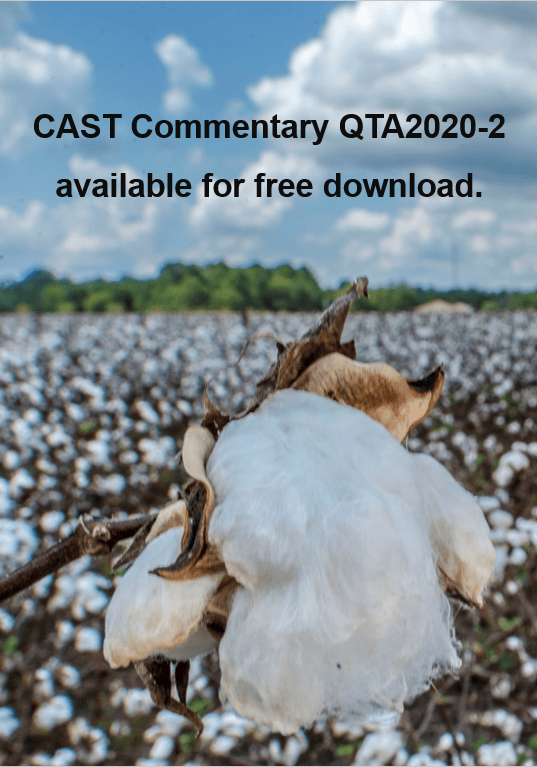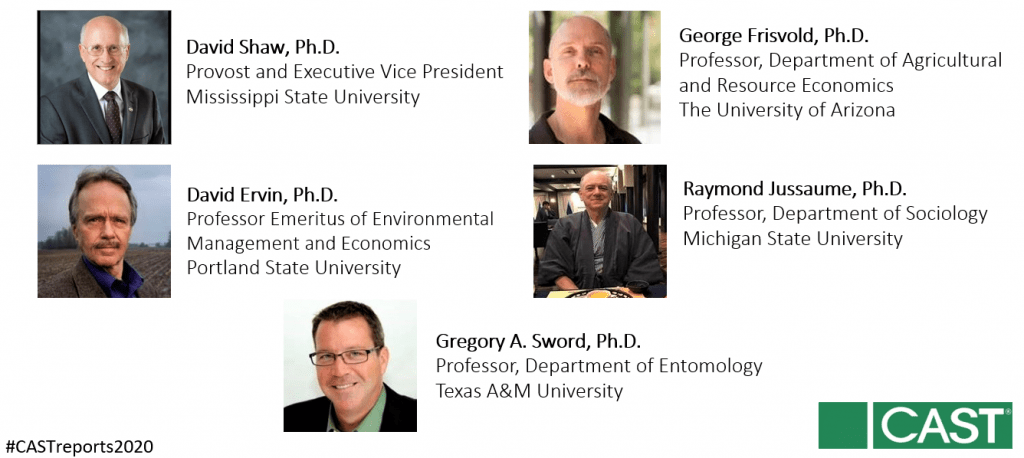CAST to Release Comprehensive Paper on FIFRA and ESA at the CropLife & RISE Regulatory Conference
Collaboration and long-term commitments are keys
**Note: this is an expanded version of an article in the May 22 edition of Friday Notes. Those joining from that article will find new material starting in the fourth paragraph.

All sides agree: pest control is challenging, and effective stewardship in an era of constantly evolving technologies is crucial. But not all stakeholders agree on general concepts and specific practices. Through a new CAST commentary and a webinar filled with insightful comments, experts examine the many aspects of proper management and give suggestions regarding a path forward.
David Shaw (Mississippi State University) led the publication task force and the webinar presentation focused on Stewardship Challenges for New Pest Management Technologies in Agriculture. Click here to access the paper, the one-page summary, and the student study guide.
Using data, information from “listening seminars,” and specific program examples, Shaw and four influential crop specialists look at the benefits and risks that come with new technologies, but they also focus on the social science aspects. They also point out that diverse stakeholder groups need to listen to each other and collaborate on solutions. They also should consider (1) diverse chemical and non-chemical solutions, (2) collective action, (3) the need for incremental progress, and (4) long-term commitments.

As the video of the webinar shows, Shaw defines stewardship, identifies the challenges, and addresses the roles of the stakeholders. As he points out, technology is the key, but it brings risks as well as benefits. He provided two specific examples of cooperative actions that helped with pest control: the codling moth and the pink bollworm. These long-term programs are examined at length in the commentary.
After outlining the key points from the paper, Shaw was joined by a panel of four experts who helped write the commentary: David Ervin (Portland State University), George Frisvold (University of Arizona), Raymond Jussaume (Michigan State University), and Gregory Sword (Texas A&M). They provided insightful answers during a lively Q&A session.
They seem to agree that the social dynamics are more important than the biological aspects. All stakeholders must listen to the varied opinions and make it easier for people to come together in an effort to achieve effective stewardship of pest management technologies.
Your donation to CAST helps support the CAST mission of communicating science to meet the challenge of producing enough food, fiber and fuel for a growing population. Every gift, no matter the size, is appreciated.